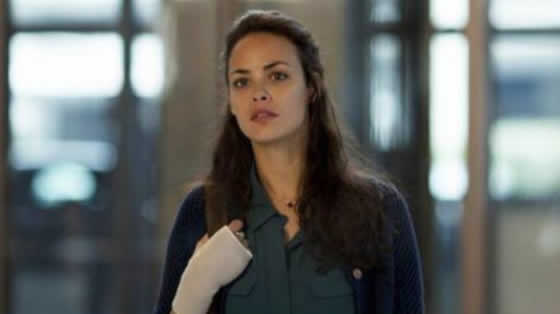 Asghar Farhadi, in Competition with The Past, held his press conference surrounded by his cast – Tahar Rahim, Bérénice Bejo, Ali Mosaffa, Pauline Burlet – and his producer, Alexandre Mallet-Guy. He took the time to respond at length and in detail to each question. Selected highlights.
Asghar Farhadi, in Competition with The Past, held his press conference surrounded by his cast – Tahar Rahim, Bérénice Bejo, Ali Mosaffa, Pauline Burlet – and his producer, Alexandre Mallet-Guy. He took the time to respond at length and in detail to each question. Selected highlights.
On working with the actors, the rehearsals and the language barrier:
Tahar Rahim: Asghar Farhadi has a very special way of working, very precise, down to the tiniest detail, and yet as a result of the rehearsal work and the sharing it involved, you end up feeling free.
Bérénice Bejo: We worked with a translator, and Arash’s voice came to be that of Asghar. There was so little time lag in our discussions that we really could listen to each other. It as very enjoyable.
Ali Mosaffa: I was on the other side of the barrier, and in the end we all ended up working in each other’s languages. It was an extraordinary experience, as we went beyond words.
Pauline Burlet: The rehearsals forged bonds between the actors which helped free us up and enabled us to give our all.
Asghar Farhadi: The joy of writing is one that can’t be shared with others. But in the rehearsals you can share the process with the actors, which gives them a sense of freedom and freshness. The best compliment anyone could pay me would be to say that the screenplay itself disappears from view.
Asghar Farhadi on the nationality of his film:
“Wherever I work in the world, I am and remain an Iranian filmmaker. It’s difficult to attach a national label to a work of art. But I don’t think we should even be asking the question, as the answer is pretty unimportant. The most important thing is the bond between the spectator and the film. Each spectator can make the film their own.”
Asghar Farhadi on censorship:
“There are two types of censorship: official censorship and self-censorship, which is much more dangerous. When I leave my country, the restrictions no longer weigh me down, but I am still subject to a conditioning that’s beyond my control. I try to see that as an advantage rather than a hindrance and to respond in a creative way.”

